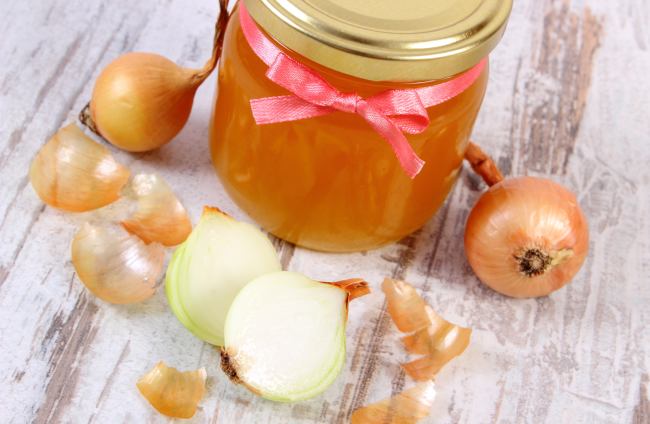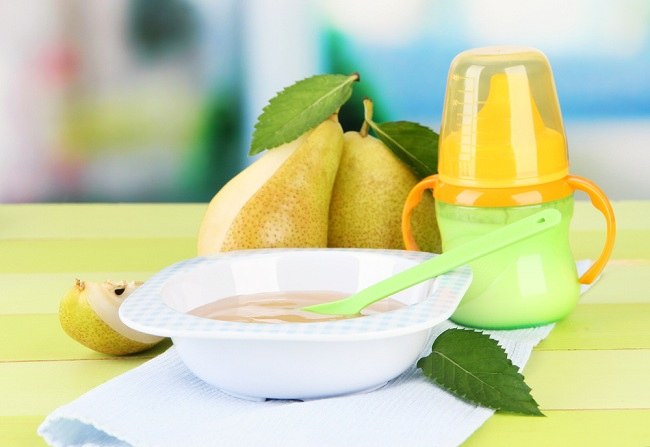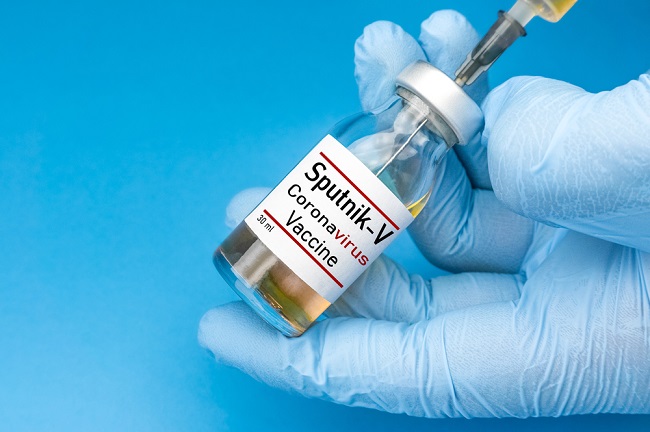Vitamins are one type of nutrient that very important for baby. There are many vitamins for babies that can be given to Poppet. Each type of vitamin has its own role and function in maintaining health baby and support their growth.
In their first year, babies experience a period of rapid growth and development. In the first 6 months, babies get their main nutritional intake from breast milk.

After being 6 months old and able to eat solid food (MPASI), your little one will need a lot of nutrients, one of which is a variety of vitamins for babies. The function of this vitamin is no less important than the intake of other nutrients, such as protein, carbohydrates, fats, and minerals.
Various Types of Vitamins to Support Baby's Health and Development
To ensure that the baby's health condition and growth and development remains good, he needs to get the following vitamins:
1. Vitamin A
Vitamin A is useful for supporting the baby's immune system and maintaining healthy skin, hair, and eyes. Infants aged 0-6 months need about 370 micrograms (mcg) of vitamin A per day, while infants aged 6 months to children aged 3 years need about 400 mcg of vitamin A per day.
This vitamin for babies is naturally contained in several types of food, such as carrots, sweet potatoes, egg yolks, mushrooms, spinach, broccoli, chicken liver, fish, fish oil, and beef liver.
2. Vitamin B1
Vitamin B1 (thiamine) helps the body convert food into energy needed for growth, development, and function of the baby's cells, especially nerve cells. Babies need about 0.3 milligrams (mg) of vitamin B1 daily.
This vitamin is naturally found in rice, beef, beef liver, chicken, fish, nuts, and seeds. Some cereal products or baby food are also fortified with vitamin B1.
3. Vitamin B2
Vitamin B2 (riboflavin) helps the body use energy and protects cells from damage. This vitamin is also good for the health of the baby's eyes, skin and nervous system.
Babies are advised to consume about 0.3 mg of vitamin B2 every day. Some types of foods that contain lots of vitamin B2 are milk, beef, eggs, and vegetables
4. Vitamin B3
Vitamin B3 (niacin) is needed by the body to convert protein and fat into energy. This vitamin is also good for healthy skin and nervous system. Babies need about 2-4 mg of vitamin B3 intake per day.
Meat or chicken liver, fish, mushrooms, avocado, potatoes, and peas are sources of vitamin B3 intake that can be added to the baby's complementary food menu.
5. Vitamin B6
Vitamin B6 or pyridoxine plays a role in maintaining a healthy brain and immune system. Babies need about 0.1-0.3 mg of vitamin B6 per day. This vitamin is naturally found in chicken, fish, vegetables, fruit, nuts, and milk.
6. Vitamin B9
Folate or vitamin B9 is one type of vitamin that is very important for baby's health. Adequate folate intake in the womb can reduce the risk of a baby being born with defects. After the baby is born, this vitamin for babies plays an important role in forming red blood cells and the baby's immune system, as well as preventing anemia.
Babies need folate intake as much as 65-80 mcg every day. This vitamin can be obtained from spinach, broccoli, beans, corn, avocados, and eggs. Some types of milk and baby cereals are also fortified with folic acid.
7. Vitamin B12
Vitamin B12 or cobalamin serves to maintain nerve and blood cells to stay healthy, as well as to make DNA which is the genetic material in every cell. Babies need 0.4-0.5 micrograms of vitamin B12 per day. Intake of vitamin B12 can be obtained by eating eggs, beef, cheese, milk, and fish.
8. Vitamin C
Vitamin C protects the body against infection, helps the body absorb iron, builds bones and muscles, and helps wounds heal. Babies need vitamin C intake of 40-50 mg per day.
This vitamin is naturally found in fruits and vegetables, such as oranges, papaya, strawberries, kiwi, mango, guava, cauliflower, potatoes, and broccoli.
9. Vitamin D
Vitamin D helps the body absorb calcium from food and strengthens bones and teeth. The recommended dose of vitamin D that babies need to get every day is about 5 mcg.
Vitamin D can be obtained through basking in the morning sun and eating foods rich in vitamin D, such as beef or beef liver, egg yolks, fish, soy milk, and fortified cereals or juices.
10. Vitamin E
Vitamin E protects cells from damage, strengthens the immune system, and is good for skin and eye health. Babies need about 4-5 mg of vitamin E every day. Avocado, mango, kiwi, and vegetables, such as spinach and broccoli, are good sources of vitamin E for your little one to eat.
11. Vitamin K
Vitamin K helps the blood clotting process and speeds up the wound healing process. Babies need about 5-10 mcg of vitamin K every day. This vitamin for babies can be found in spinach, broccoli, cauliflower, cabbage, fish, liver, meat, and eggs.
Vitamin needs for babies can generally be met if they get complementary foods that are nutritious and varied with appropriate portions. But if needed, you can also give your little one vitamin supplements. However, you need to consult with your pediatrician first, so that the type and dosage of supplements given are according to the needs of your little one.









